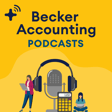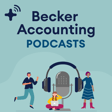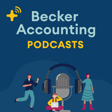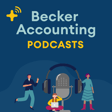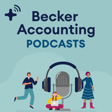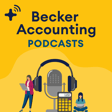
Balancing the Future Ep. 11 - Sponsors, Mentors, and Coaches: Building a Supportive Team with James Crinklaw
A successful career takes hard work, talent, education, and drive, but even with those factors in place, it’s nearly impossible to achieve your goals alone. James Crinklaw, Director of Operations at US Resources Client Group, joins Christopher Mitchell to talk about sponsors, mentors, and coaches—how those roles differ, how they support you, and why you need each one. They also discuss the three stages of a career trajectory: "Learning, earning, and returning" to sponsor, mentor, or coach a new generation.
Earn CPE by listening to this podcast through a Becker Prime CPE subscription.
Listen to this episode through your Becker LMS platform to complete practice questions, pass the final exam, and earn CPE credit.
Already a Becker Prime CPE customer? Login here.
Have access to Becker CPE through your employer? Earn CPE credit for this podcast however you consume Becker CPE, either through your company’s LMS or via the Becker platform. Not sure where to log in? Check with your CPE admin.
Learn more about CPE Podcasts from Becker: https://www.becker.com/cpe/becker-podcasts
